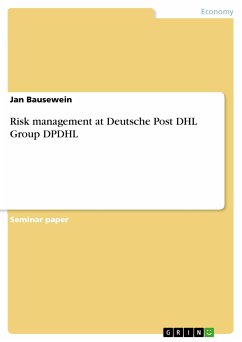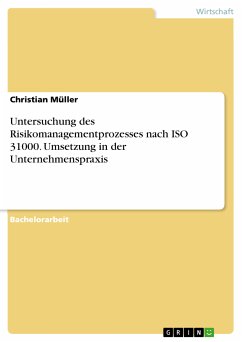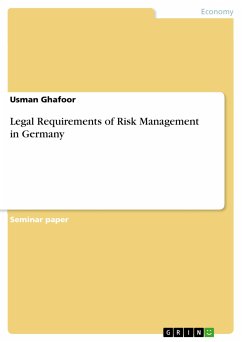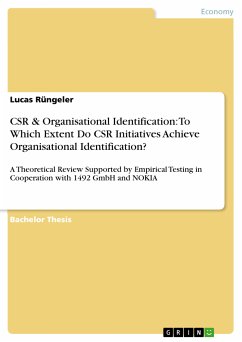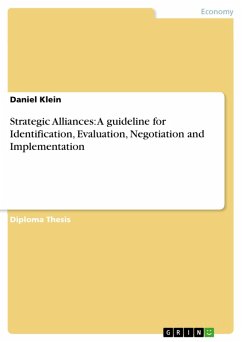Seminar paper from the year 2022 in the subject Business economics - Miscellaneous, grade: 2,0, University of applied sciences Frankfurt a. M., course: Develop a New Business, language: English, abstract: Deutsche Post DHL Group (DPDHL) is a German company headquartered in Bonn and the world's largest logistics group with currently over 550 thousand employees. The company is in very good shape despite the Corona pandemic and counts among its core business logistics services such as mail and parcel delivery, air and sea freight, express delivery, e-commerce solutions and supply chain management. The company's stability is due in part to the successful implementation of its risk management. Risk management is a corporate area whose tasks include identifying, assessing, managing and monitoring company-specific risks in order to safeguard the company's existence and increase in value. The orientation is always linked to the corporate goal and strategy and is regulated by the internationally valid ISO 31000. DPDHL has been reporting publicly on this area of the business since the introduction of the German Control and Transparency Act (Gesetz zur Kontrolle und Transparenz (KonTraG)) in 1998. With the help of transparently communicated risk management processes, the Group creates clear structures and guidelines that enable it to maintain an overview of its global supply chains and to manage regulatory, (geo)political, financial and social risks in real time. Some measures indicate that DPDHL's risk management is implemented sustainably and successfully. Not all risks can be reduced or even avoided, which is why risk management as a management task is always linked to strategic decisions and all managers in the Group are involved in communication, right up to the Board of Management.
Dieser Download kann aus rechtlichen Gründen nur mit Rechnungsadresse in A, B, BG, CY, CZ, D, DK, EW, E, FIN, F, GR, HR, H, IRL, I, LT, L, LR, M, NL, PL, P, R, S, SLO, SK ausgeliefert werden.

